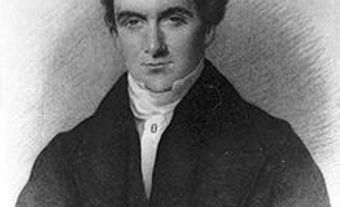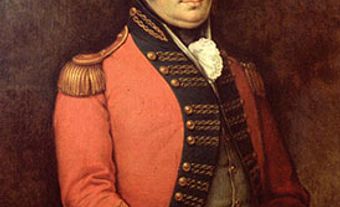Barnabas Bidwell, lawyer, teacher, politician (b at Monterey, Mass 23 Aug 1763; d at Kingston, Upper Canada 27 July 1833), and his son, Marshall Spring Bidwell, lawyer, politician (b at Stockbridge, Mass 16 Feb 1799; d at New York C, 24 Oct 1872). Barnabas Bidwell was an important Massachusetts politician who fled to Upper Canada in 1810 when charged with forgery and embezzlement.
He actively opposed the Tory elite in Kingston during the Robert Gourlay agitation and contributed to the latter's Statistical Account of Upper Canada. He probably introduced the label "Family Compact" to identify the local elite; it was applied to the provincial administration by his son.
He was elected to the Upper Canada Assembly for Lennox and Addington in 1821, but was expelled because he was a criminal and an alien (see Alien Question). The Tories maintained that Americans who had arrived before 1812 had to be naturalized to secure property and political rights.
Marshall Spring Bidwell, who came to UC in 1811, attempted to replace his father in the Assembly but was declared ineligible as an alien. The younger Bidwell emerged as a reform leader, sitting in the Assembly 1824-36 and acting as Speaker in 1828 and 1834. He advocated secularization of the clergy reserves, abolition of primogeniture, liberalization of marriage laws, abolition of imprisonment for debt, and greater Assembly control of revenues.
He rejected the radicalism of William Lyon Mackenzie, and after his defeat in 1836 left politics. He played no role in the rebellion, but was advised by Lieutenant-Governor Sir Francis Bond Head to leave the province in December 1837 because he was "disloyal."

 Share on Facebook
Share on Facebook Share on X
Share on X Share by Email
Share by Email Share on Google Classroom
Share on Google Classroom


